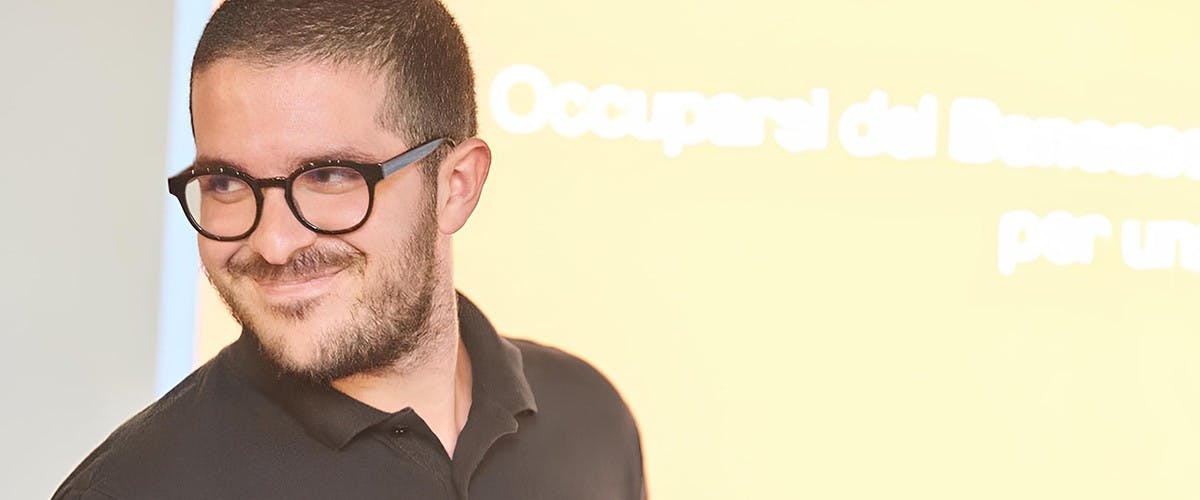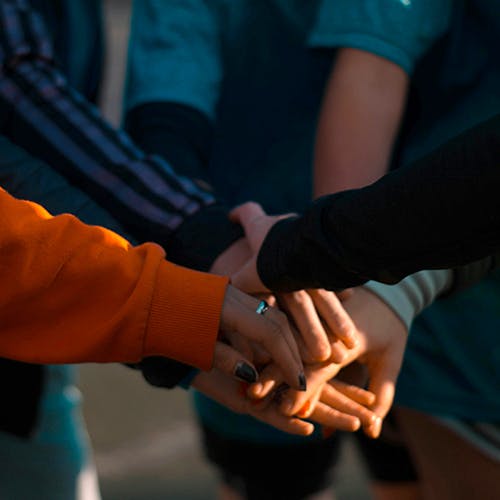belong to history
The Company as a Tool to Awaken Conscience
Today we present the first contribution to a new section of Belong, which will give space to external voices from the social, economic, and cultural worlds—people who, like us, share values and reflections close to our hearts.

In this new window on the world, we welcome ideas and perspectives that help us see reality—and ourselves—through new lenses, always filtered by our dream and our corporate culture. Kicking off this section is Lorenzo Tedeschi, a young entrepreneur and manager committed to promoting psychological well-being and ethical work. He leads TeamDifferent, through which he brings the topic of mental health into organizations, and is the curator of ETHICAL HR, a festival focused on ethical and responsible HR practices. He writes about failure and mental health and edits several magazines centered on collective well-being. In his contribution, he offers a personal and innovative perspective on issues that lie at the heart of our company culture: collective well-being, ethical work, and the positive impact companies can have on society. A new journey on Belong, which speaks to us about belonging, shared values, and authenticity.
Michael Novak, Vittorio Tadei, and His Obsession with Good People
These are times in which business has become a powerful tool for innovation and cultural progress. Times in which organizations are called to make conscious, virtuous, sustainable, and above all responsible choices to drive change and contribute to collective well-being—at all levels.
Times in which, contrary to what the business literature of the 1990s taught us, the economic perspective is no longer the only lens through which to view a growing company, and profit is no longer the sole indicator of well-being. Today, new factors come into play—unthinkable even a decade ago: social responsibility, impact on the community and the environment, employee well-being, and local impact.
Business, therefore, is a means by which leaders can foster the common good and uphold human dignity. And this belief is not limited to ESG trends, stakeholders, or certification bodies. It is also shared by the Catholic Church.
Michael Novak, an American philosopher who passed away in 2017, was perhaps the most pioneering voice on what has come to be known as the "theology of enterprise"—a new way of looking at business, entrepreneurs, and capitalism itself. Toward a Theology of the Corporation (1996)—a book I highly recommend—builds on the foundations laid by Pope John Paul II, one of the first to affirm that the business world is not incompatible with Christianity, and that business leaders are not all villains. Some, in fact, possess extraordinary intelligence, distribute wealth fairly, and improve the lives of individuals and communities.


This is what Novak called "democratic capitalism," which—if placed in service of human needs—can support human freedom and spirituality, and even bring people closer to God.
In February 2011, at the headquarters of the Pontifical Council for Justice and Peace (PCJP), a seminar was held titled Caritas in Veritate: The Logic of Gift and the Meaning of Business, inspired by Pope Benedict XVI’s social encyclical Caritas in Veritate. At its core was the vocation of the business leader, who, according to the Catholic Church, should be guided by several key principles:
meeting the world’s needs with truly useful goods
showing solidarity toward vulnerable individuals
preserving human dignity
applying the principle of subsidiarity—seeing employees as “co-entrepreneurs”
encouraging initiative, and fostering their skills
Let’s come back to us. Why have I shared all this?
Because I like to think of Teddy as a cathedral of ethical work. Let me explain.
The Transformative Potential of Work
Few are able to grasp the social and transformative opportunities offered by capitalism. Those who do are often people who see work as a tool for personal and social growth—not merely a means of survival.
Social change and progress have taught us to view work as an educational activity and the workplace as a space where adults can become better people—through a kind of training that humanizes individuals and allows them to be active protagonists of their own cultural and professional growth (Macchietti, 2005). And thanks to virtuous organizations that see workers as people to be educated, people who must both know how to do and know how to be.
From a pedagogical perspective, work is thus a kind of implicit educator, capable of offering people real opportunities to become who they want to be and to self-actualize: shaping a personal life or career plan, acquiring new skills, taking on responsibility. All of this is deeply tied to the history of Teddy and its founder, Vittorio Tadei.

I don’t know whether Vittorio was actually inspired by texts on transformational leadership such as Rebel Leadership: Commitment and Charisma in the Revolutionary Process by James V. Downton (1973), or Leadership by James Burns. What I do know is that Mr. Tadei was a philosopher without knowing it.
A man who struck me, from the very first moment, as complex and committed—driven by a single, great professional value: to use the company to give people dignity and offer them a chance to change their lives. A deep sense of social responsibility made him, as many testimonies show, an entrepreneur in love with good people—regardless of their technical background.
Back to our discussion: ethics and work are topics that are deeply connected. And it was the philosophers who sparked this connection. Weber believed in an ethical, shared business culture rooted in profit. Kant wrote that work was much more than a way to make a living—it had the potential to give meaning to people’s lives. He also stressed the importance of moral law and the common good, which must remain a priority. The thinking behind these philosophers, as well as behind transformational leadership—and behind Vittorio—was based on the idea that work is not an evil to be eradicated or a social phenomenon to be fought. Work is not the enemy of well-being or free time. If organized ethically, work becomes a training ground for life and self-esteem, essential for social recognition, for openness to others, and for discovering one’s own uniqueness.

And this is exactly the legacy of business men and women like Teddy’s founder: working ethically and morally to improve the lives of those around them—even at the cost of being worn down by their own sense of responsibility and inner judgment.
For psychiatrist Viktor Frankl, the meaning of work lay in discovering one’s uniqueness and capability. For Tadei, it was proving that in the end, good people always win.
To Vittorio (and to my father)
Both paternal, both driven by the desire to see those around them thrive. As rigid as they were terrified of failure. And strict—above all—with themselves.